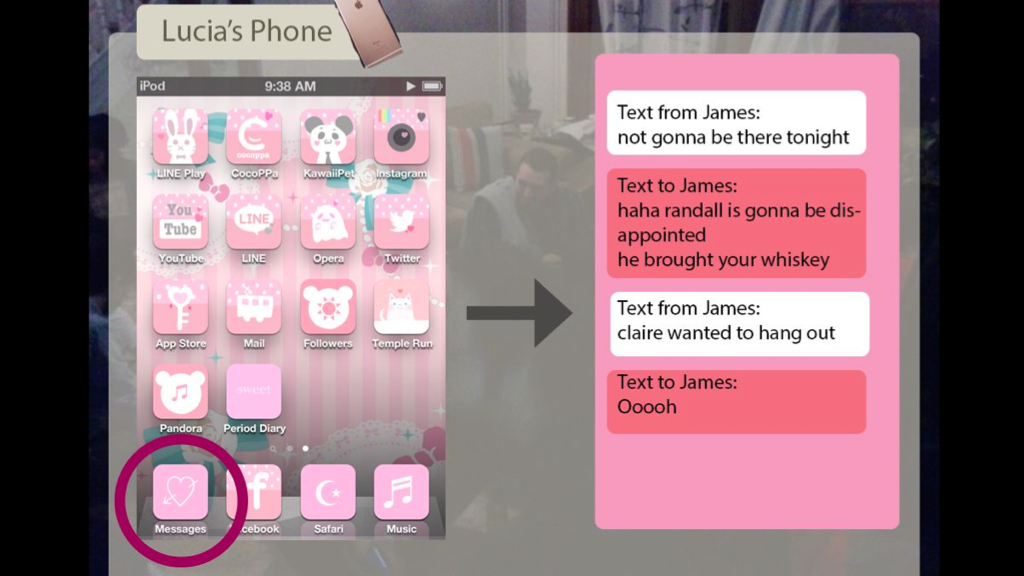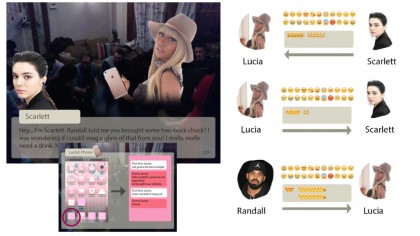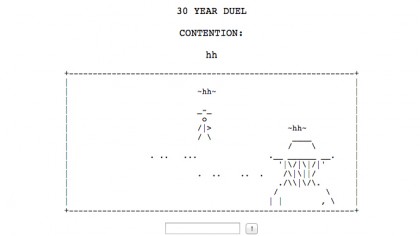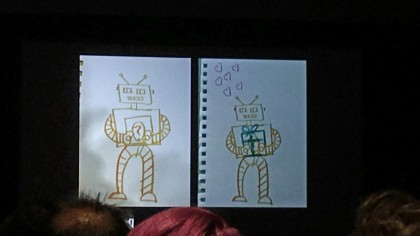How do you make a game that people will play for 30 years? Crayons and Buddhism

At GDC, one conference in particular has become legendary for the wonderfully bizarre ideas it has given birth to - the Game Design Challenge.
The title is pretty self-explanatory: some of the industry's most innovative developers must pitch a game to fit around certain theme. The last one took place in 2013, where the challenge was to design the final game that humanity would play. This year, the conference reconvened for a special-edition episode: create a game that will last for 30 years.
Game designer Chris Crawford was joined by Nina Freeman (Cibele), Zach Gage (Ridiculous Fishing) and Anna Kipnis (Double Fine Productions), and though only a small handful of ideas were put forward, the ones that were presented ranged from the ridiculous to the genius.
Freeman was first to pitch her title, a game inspired by soap operas in which players would react to a gradually unravelling story around characters that updated daily.
At the end of each daily instalment, the player would be prompted to use emojis to describe how they think the characters feel about one another, letting the players guide the emotions of the characters while the game writers stay in control of the story. "It's kind of inspired by reality TV where producers have to react to people being voted off the island in Survival, for example," said Freeman.
Oh, and appropriately the writers are called DMs - Drama Managers.

Before Zach Gage presented his idea, he told us about two of his trial attempts. The first was called Duel, and you can actually play it here. "I had to come to terms with this issue that no decision I made as a game designer is going to be more meaningful to the player who's playing the game, than their decision to spend 30 years on something," he said.
Sign up for breaking news, reviews, opinion, top tech deals, and more.
Being able to look back 30 years as a human is pretty astonishing
Gage said he wanted a minimal level of player action, and Duel embodies just that. Type in your name, the name of the person you're duelling with and your complaint before selecting the length of time - 15 years or 30 years. Both players are then given a URL, and the winner is the first person to return to their link after the allotted time period.

Gage went a bit deeper for his second run up, which was simply a video of him setting light to a piece of paper with a phone number and password on it - the goal would be to call the number and recite the password. "It's a game for time travellers," he told us.
But for his finalised idea, Gage really thought about what 30 years meant. "Being able to look back 30 years as a human is pretty astonishing," he said. "Why not just make the game a celebration of that time?"
The game is called Generation Lamp, a degenerative lamp that moves move through all 16,777,216 possible colors in the RGB hexadecimal spectrum at one per minute. Once you have set up your "lamp" you'll get your own custom link, which can be used to put on any smartphone or tablet you wouldn't otherwise be using. As your devices die out you can point new devices to the same link and it will continue to move through the spectrum. There's also a communal lamp that will die in 2047. Bleak.
Next up, Anna Kipnis presented an idea that was focused on self-introspection, partly inspired by French philosopher Albert Camus, and partly by a game where you give someone two names and ask them who they'd rather have sex with (yes, it can offer a lot of insight into someone if played for long enough). "But how do I offer that in a game, and anyway, what offers insight into oneself?" asked Kipnis.
The game she came up with was called Drawing Conclusions. In it, one player draws a sketch and adds a question mark to a location before inviting the other to add something. The first player then writes an analysis of the second based on what the other added. Think of it as Consequences with more psychological scrutiny.

Finally, GDC founder and game designer Chris Crawford offered something a bit more profound, but not a new idea as such. He was concerned about how to keep the learning curve remaining steady over 30 years, and to ensure it had enough information to last that three-decade period.
There's a game that's been running around for thousands of years and it's called religion
"No human can put that much information into a game," said Crawford. "This sort of game requires divine inspiration."
So instead, he turned an old idea on its head. "There's a game that's been running around for thousands of years and it's called religion," he said, "and the game designers are called priests. You get points by doing good and you lose points by doing bad. In the Hindu religion those points are called karma, in the Christian religion they're called grace.
"In the Hindu religion the victory condition is to attain Nirvana, in the Christian religion it is to get to Heaven. Although the Christian religion designers came up with an interesting twist - they made it bipolar. If you lose you go to Hell."
Crawford pointed out that the Hindu religion is much more generous with lives, giving the player infinite retries. "You just keep playing until you win. It's a very positive constructive attitude towards gaming. The designers in the Christian religion are not so generous. One life, that's a depressing thought."
He also noted that religions like Christianity, Hinduism and Buddhism have long known some of the biggest trade secrets. "They know graphics help sell the product," he said, showing the audience a picture of a stained-glass window. "They also found that music and sound effects help. And the results of this are excellent, because if you do this well, if you're a really good game designer, the profit margins are huge."
"And it has attracted a huge array of indies," concluded Crawford, referring to some of the smaller religious bodies. "These people have proven to be very successful - well some of them. Some of them have gone down in flames, but that's what indies are for."
He made a strong case, but Kipnis was declared the winner.

Hugh Langley is the ex-News Editor of TechRadar. He had written for many magazines and websites including Business Insider, The Telegraph, IGN, Gizmodo, Entrepreneur Magazine, WIRED (UK), TrustedReviews, Business Insider Australia, Business Insider India, Business Insider Singapore, Wareable, The Ambient and more.
Hugh is now a correspondent at Business Insider covering Google and Alphabet, and has the unfortunate distinction of accidentally linking the TechRadar homepage to a rival publication.